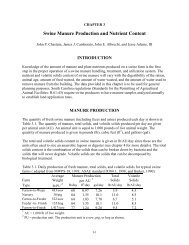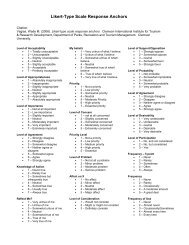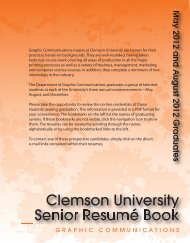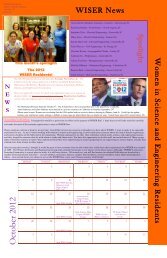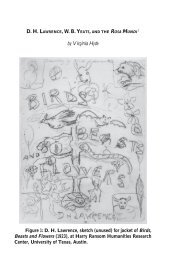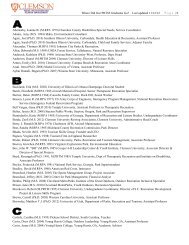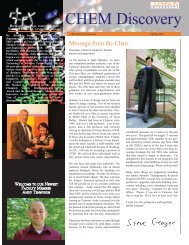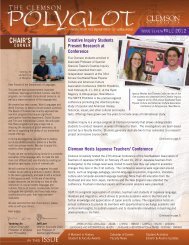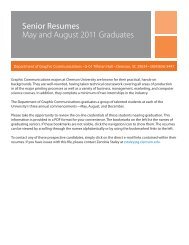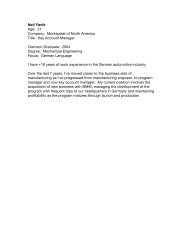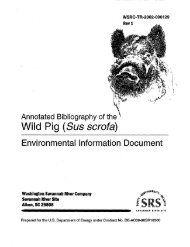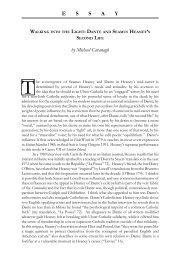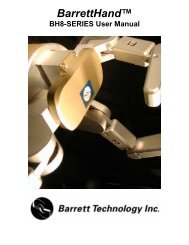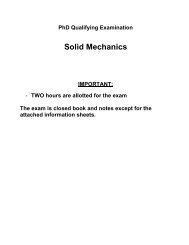Woolfian Boundaries - Clemson University
Woolfian Boundaries - Clemson University
Woolfian Boundaries - Clemson University
You also want an ePaper? Increase the reach of your titles
YUMPU automatically turns print PDFs into web optimized ePapers that Google loves.
•<br />
Nearly seventy years later, in the summer of 2004, I reconnected with Virginia Woolf<br />
when one of my assistants discovered three letters Woolf had written me in 1935 and<br />
1936. Th rilled with the discovery, my editor, Philip Turner, announced: “Stop everything<br />
you’re doing. Remember, you wrote the fi rst doctoral thesis on Virginia Woolf’s work. I’m<br />
going to publish it in its entirety, including these three newly discovered letters and also<br />
her diary entries about you.”<br />
Th e book, entitled Virginia Woolf: Th e Will to Create as a Woman, appeared in 2005.<br />
It had been my fi rst book, and now it was my eighteenth. My two children and I agreed<br />
with my friend, the novelist Cynthia Ozick: “Th ese letters do not belong to you and your<br />
children. Th ey belong to the world.” On 12 December 2005, we donated them to the<br />
Berg Collection in the New York Public Library. Woolf scholars can now fi nd them in the<br />
Collection among the 28 volumes of her diaries and more than 100 of her letters.<br />
•<br />
In 2006, the annual Virginia Woolf Conference held in Birmingham opened my eyes<br />
to the global scope of Virginia Woof’s infl uence. When I wrote my thesis in 1932, there<br />
was no such person as a “Virginia Woolf scholar.” At the conference, however, I was accepted<br />
by a group of brilliant and enthusiastic Woolfi ans from all over the world. Some<br />
had even come from Australia, China, and Japan. Th ere I learned from some of the older<br />
scholars that my study was the only one available to them during the rediscovery of Virginia<br />
Woolf by American and British feminists in the 1960s.<br />
Th e conference reawakened my understanding of how much I owed to Virginia<br />
Woolf. She helped me fi nd the courage to write as a woman, and to use words and images<br />
as my tools to fi ght injustice. Th roughout the rest of my life, the words she spoke to me at<br />
52 Tavistock Square were written across my heart: We had such hope for the world.<br />
I wish I could tell her that, despite everything, I still have hope.<br />
viii



